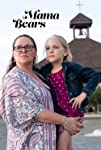Eye For Film >> Movies >> Mama Bears (2022) Film Review
Mama Bears
Reviewed by: Jennie Kermode

Understanding what others are thinking and feeling doesn’t always come naturally. If you’ve been taught all your life to stay away from a particular group of people and you’re surrounded by people who tell you that they’re out to destroy the values you hold most dear, it takes an effort to see them differently, and you might not have a reason to make that effort. Kimberley Shappley always thought of herself as a kind and helpful person. She didn’t shun LGBTQ+ people like some others in her church – she actively reached out to them to try and help them see the error of their ways, to save their souls. The thought of them burning in Hell horrified her. But then her three-year-old child came out as trans, and suddenly, everything looked very, very different.
Daresha Kyi’s documentary, which is shortly to screen at the Fragments Festival in London, charts the stories of women like Kimberley who were raised in the American South and whose lives were transformed by their LGBTQ+ children. They reckoned with the experience in different ways and found different paths to reconciling it with their faith, but for all of them, their love for those children meant that rejecting them was unimaginable. The film also explores their own experiences of rejection, isolation and spiritual struggle, and looks at the power of community to bring about positive change.

If three sounds like a shockingly young age for a child raised as a boy to start asserting that she’s a girl, it’s worth noting that it’s actually about average for the formation of a sense of gender (whether a child is trans or not), and also that young Kai is a naturally forthright individual. “Do I look anything like a boy? No, I do not,” she says firmly. Kimberley, not knowing how to respond to the situation, read books, went on the internet and tried applying conversion therapy techniques at home, including physical punishment whenever Kai asserted her femininity. Nothing changed, and when Kai told her, at four, that she wished she could go straight away to live with Jesus forever and never return, she realised just how much was at stake. Now Kai lives, as far as possible, like any other girl, but the sacrifices the family has to make to make that possible are heartbreaking. “At least our dog still loves us,” she writes.
Alongside their story is that of Sara Cunningham, who saw the church as the centre of her life, and who speaks passionately of her love of scripture and prayer. When her son Parker came out as gay at 15, it felt like the end of the world. She describes her feeling that she had failed as a mother. Again, efforts to change the situation achieved nothing, and it became plain that Parker had tried to change himself, unsuccessfully, for years. Then, whilst searching for help, Sara found her way to a Facebook group called Mama Bears, expressly set up for women in her situation by Liz Dyer, who says firmly “The Church is what we make it.”
Also addressed here is the story of Tenita Lewis Artry, who grew up as a minister’s daughter in a Pentecostal church and still can’t fully reconcile herself to her now adult daughter, Tammi Terrell Morris, being a lesbian. That does not mean, she says, that her love for her daughter is one bit less, and the film explores how both woman have striven to make the best of the situation, with Tammi trying for many years to live in a manner which the Church would approve of, and Tenita growing increasingly worried about the effect of this on her mental health. In the end, a shocking and unexpected event would change everything.
These individual stories invite human connection in relation to a subject which is often framed – often intentionally – in an impersonal way. They form the backbone of the film, and anyone of them could be an adequate subject for a full documentary of its own. Kyi has a sharp eye for the little details of people’s homes and unconscious behaviours which enrich our understanding of who they are. We also move more directly into political territory, however, as Kimberly and kai feel forced to speak out after their lives are turned upside down by the introduction of the Texas Bathroom bill under the guise of protecting the vulnerable. Viewers should be aware that some of the responses to their intervention, from people on the internet, are extremely distressing in the hatred they display towards a child, and may get under your skin even if you’re familiar with transphobia more generally.
On the flip side of this comes a different kind of activism which stems from the Mama Bears group. Some viewers may already have seen pictures of women at Pride parades holding signs which read ‘free mom hugs’. This might sound trivial, but to the thousands of young LGBTQ+ people disowned by their families, it can be an overwhelmingly positive, healing experience. Kyi observes its evolution, the response to the election of Donald Trump, and the discovery of other simple, cost-free ways in which women willing to take on such a role can help to undo the damage.
A powerful, heartfelt film which explores complex psychological and social issues in an accessible and involving way, Mama Bears is bound to make an impression on everyone who sees it.
Reviewed on: 28 Sep 2022
















